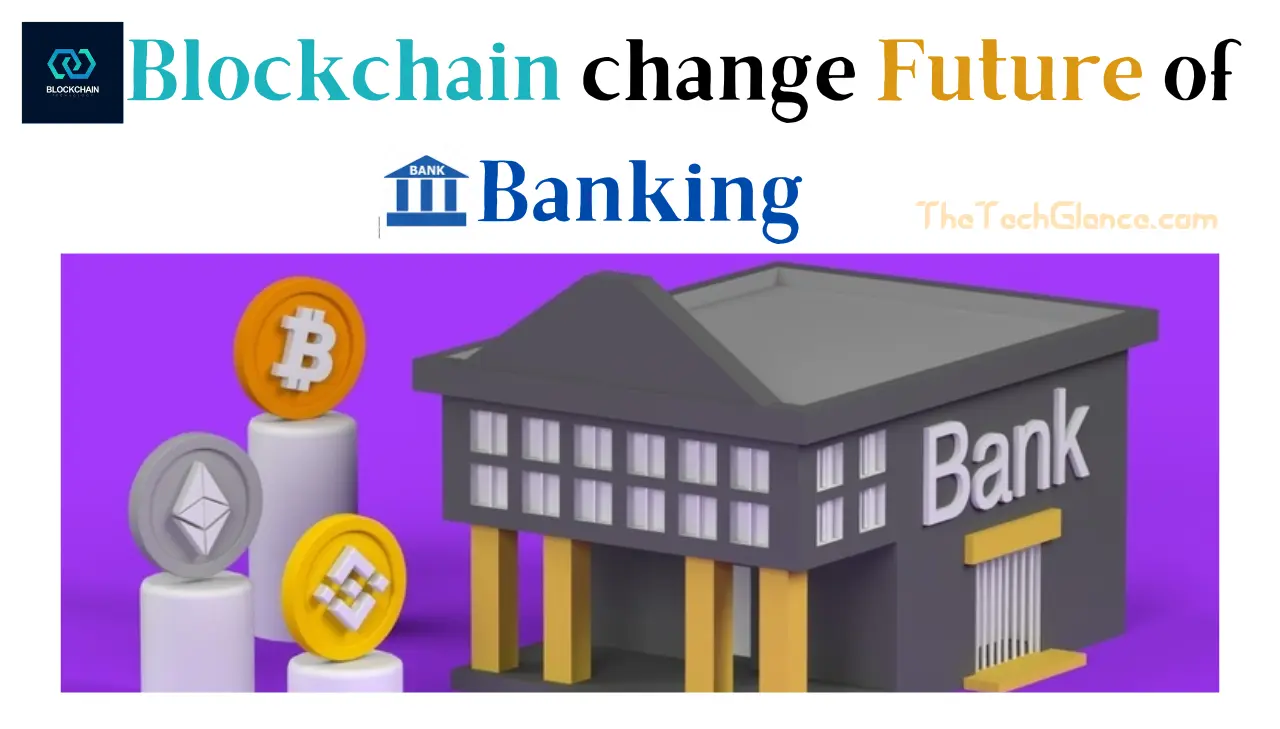Will blockchain technology replace banks? Traditional banking can readily be replaced by decentralized finance, hence the answer to that question is categorically yes. Blockchain may readily replace money in all these applications as a store of value, a medium of exchange, and a unit of account. Decentralized blockchain-based systems can also displace traditional banking with its quick transactions, increased security, reduced fees, and smart contracts.
The banking sector has a lot of potential to change and become more transparent, efficient, safe, and cost-effective thanks to blockchain. According to this study on blockchain developer salaries, the market for modern blockchain technology is presently estimated at $20 billion, and demand for developers is growing by more than 500% annually.The banking industry will change in a number of ways as a result of blockchain technology:
Will Blockchain Technology a Bank Replacement?
Financial institutions can benefit greatly from blockchain if they seize the opportunity properly. But now is the time to act. Deloitte uses proven client-centric methodologies to analyze business performance and make informed decisions about where to play and how to win.
In today’s tough economic climate and under pressure from regulators and investors, banks have had to find new ways to reduce costs and increase profitability. In this case, technical innovations like blockchain can save the lives of banks.
Many experts predict positive impact of blockchain technology on banking sector, including new revenue streams, improved efficiencies, millions in savings, and significant reductions in product risk. Some people find it unnecessary to worry about these projects.
Deloitte Blockchain Institute and Deloitte Center for the Long View evaluate blockchain potential
In search of answers, the Deloitte Blockchain Institute partnered with Deloitte’s Center for Long-Term Vision to conduct extensive research and explore blockchain’s potential to eliminate inefficiencies and identify productivity gains for real-world applications of the technology.
We think the banking and finance sector’s push towards disruptive technology is justified. While we don’t expect blockchain itself to eliminate financial intermediaries or replace existing systems, we believe its impact will be disruptive across industries and provide an open and accessible financial system for all.
Blockchain refers to a new type of digital information society that gives participants access to public data repositories that are updated sequentially with unprecedented security and reliability.
It can only be renewed with the consent of a majority of the participants. Increasing interest in Blockchain within the financial services industry Interest in blockchain is growing rapidly, especially in the financial sector:
- Blockchain technology in banks creates a sense of trust and offers faster P2P transactions.
- Unlike traditional transactions that rely heavily on centralized organizations (i.e. banks) to issue and store data, blockchain transactions are managed by a network of nodes, resulting in faster payments, fewer intermediaries, and ultimately lower costs.
- Relevant information can be provided by different actors: fintech consultants, banking experts, blockchain developers and companies specializing in blockchain solutions in particular.
Potential of Blockchain in Data Reconciliation
In addition, Blockchain technology in banks has the potential to replace most serial database models and provide a decentralized database as the source of truth. Today, data integration is at the heart of companies’ business processes, not only in the financial services industry, but elsewhere as well.
Each independent agency keeps the information in its systems up to date. So, from a business perspective, many business processes are slow and inefficient due to the need to compromise on the consistency of external operations.
Finally, blockchain not only enables banks to significantly reduce the complexity of their current operations, leaving behind many aspects of the existing infrastructure.
To meet these expectations, banks must rethink their vision and strategy, their role in the rising wave of blockchain innovation and new competitors, their value propositions, new ways to attract and retain customers, regulatory and security issues.
By understanding the needs of end users, financial institutions are well positioned to take advantage of blockchain opportunities based on new business models and potential cost savings. But he had to act fast. The most engaged, innovative and investable banks have interesting prospects.
Expediting International Transfers
Blockchain has the potential to speed up and reduce the costs of remittances and international transactions, as well as making transactions more transparent and secure. Today, money transfers from one country to another can take days and involve many third parties.
Each organization gains market share. This means that once the money reaches its destination, the sender can lose a lot of money. Blockchain technology enables fast and efficient peer-to-peer transactions for merchants and consumers worldwide, for example through Bitcoin wallets.
You may not see Disadvantages of blockchain in banking.
By Potentially Eliminating Middlemen & Commissions
Blockchain allows people to trade directly with each other using transaction records on a shared ledger. This eliminates the need for intermediaries such as stock exchanges and banks.
If the banks are reformed, their stock markets will undoubtedly suffer. However, this is not clear for intermediaries, such as commodity exchanges, which provide essential services for commodity trading.
They can still contribute to the liquidity and security of blockchain-based financial systems, but the days of accepting commercial payments should soon be over with blockchain technology.
Conclusion
Blockchain technology is slowly but surely penetrating the banking and financial sectors. It can also change the overall security of the banking industry.
If you’re thinking about implementing a blockchain banking solution, it makes sense to interview experienced developers who can guide you through the ins and outs of the technology.
FAQ about Blockchain Technology A bank replacement?
What is The Future of Blockchain in Banking?
Blockchain technology is having a major impact on the security of international transactions and digital assets, from remittances to securities transactions and cross-border payments.
Hello, my name is Rishabh Kumar and I am the author of TheTechGlance.com. I am fond of writing and I have done engineering from NIT Hamirpur due to which I have good knowledge of technology, AI, Crypto and network.
